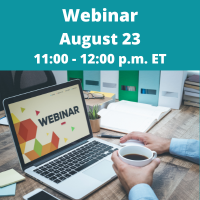Tech Opportunity Webinar to feature a New Therapeutic Target in Pancreatic Cancer

August 23, 2023 | 11:00 AM – 12:00 PM
WebEx
The NCI Technology Transfer Center will host a technology opportunity webinar on Wednesday, August 23 from 11:00 a.m. - 12:00 p.m. ET. The webinar will highlight a new therapeutic target in pancreatic cancer centered on the Glypican-1 (GPC1) cell surface heparan sulfate proteoglycan protein overexpressed in pancreatic cancer. Please register to attend.
Presenter
Mitchell Ho, Ph.D.
Deputy Chief
Laboratory of Molecular Biology
Center for Cancer Research
NCI
About the Featured Technology
Pancreatic cancer is the fourth most common cause of cancer deaths in the U.S. The overall 5-year survival rate is 8.5%. The current standard of care for treatment includes surgery, radiation and chemotherapy. While there are several FDA approved immunotherapy treatment options for various cancers, there is currently no immunotherapy treatment options for pancreatic cancer. Glypican-1 (GPC1) is a cell surface heparan sulfate proteoglycan protein overexpressed in pancreatic cancer, and is the immunotherapy target for this new inventive chimeric antigen receptor (CAR) based therapy.
Technology Competitive Advantages:
- GPC1-targeted CAR-T cells demonstrated potent antitumor efficacy in a peritoneal dissemination xenograft mouse model.
- Recombinant receptors providing both antigen-binding and T-cell–activating functions.
- Likely successful targeting and lower toxicity due to high affinity of the GPC1 nanobody fragment.
- Incorporation of the IgG4 hinge sequence increases the potency of the nanobody based CARs against pancreatic cancer.
- CARs using the IgG4 hinge domain are available for immediate testing.
- Potential immunotherapy for several cancer types with few treatment options – including pancreatic adenocarcinoma and uterine cervical cancer .
Why attend?
- Assess co-developing the technology
- Interact with the inventor, ask questions and provide feedback
- Learn how to partner with the NCI
Who should attend?
- Business development professionals
- Drug development professionals
- Biotech/pharma/academia researchers
- Investors and entrepreneurs
- Foundations, philanthropies and patient advocacy groups